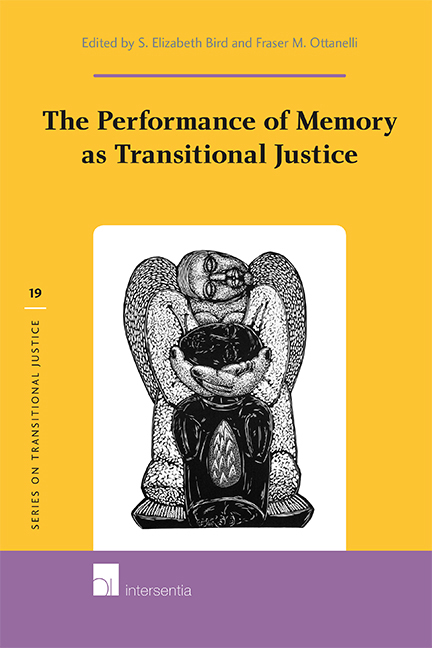Chapter 10 - Conceptualising Alternative Forms of Justice: The Politics of Memorialisation in Rwanda
Published online by Cambridge University Press: 16 December 2020
Summary
I sat on the porch of a guesthouse in Kigali in 2011 and talked with a young schoolteacher from rural Rwanda – who I later learned was a genocide survivor – about education, reconciliation, and memorialisation. He believed that remembering the genocide was the only way to avoid similar tragedies in the future. He was most concerned not about prosecutorial justice for the genocide, but about memory, and having memorials that would provide convincing evidence even one hundred years down the road. He said, ‘when you commemorate past tragic events, you get image to try to build your present period. And when the present period is well built for commemoration of past instance, their future will be brightest.’ He was very adamant about the necessity of memory, although it can be painful. I have encountered this notion that forgetting constitutes injustice not only from survivors but also from government officials.
Transitional justice frameworks often emphasise the transitory nature of memory; a core tenet of these frameworks is that the trauma of memory can be dealt with, and put behind people, in an effort to move forward. However, I argue that that this creates a linear framework that can be problematic as we consider the process of memory, and that the persistence of memory need not be thought of as impeding justice, but as part of an evolving process. In this chapter, I argue that justice in Rwanda can be found through representations of multiple memories of the genocide rather than just one (in ‘memorialisations’ rather than ‘memorialisation’). Furthermore, allowing genocide memory to persist allows for a more effective transitional justice process, rather than silencing memory in the name of ‘moving on’. Certainly, genocide memorialisation can and does prolong trauma, yet the struggles to deal with this trauma and the acknowledgement of its persistence go a long way towards conceptualising alternative forms of justice.
Justice is often thought of as a legal mechanism, reinforced by the transitional justice literature that explores local, national, and international mechanisms. Rather than anchoring itself in this legal framework, my analysis references a human or social framework to explore the relationship between justice and memory in the Rwandan case.
Some scholars and media observers have argued that in Rwanda, survivor memory is marginalised by authoritarian government policies, and in some instances, this marginalisation is indeed apparent.
- Type
- Chapter
- Information
- The Performance of Memory as Transitional Justice , pp. 167 - 180Publisher: IntersentiaPrint publication year: 2014

